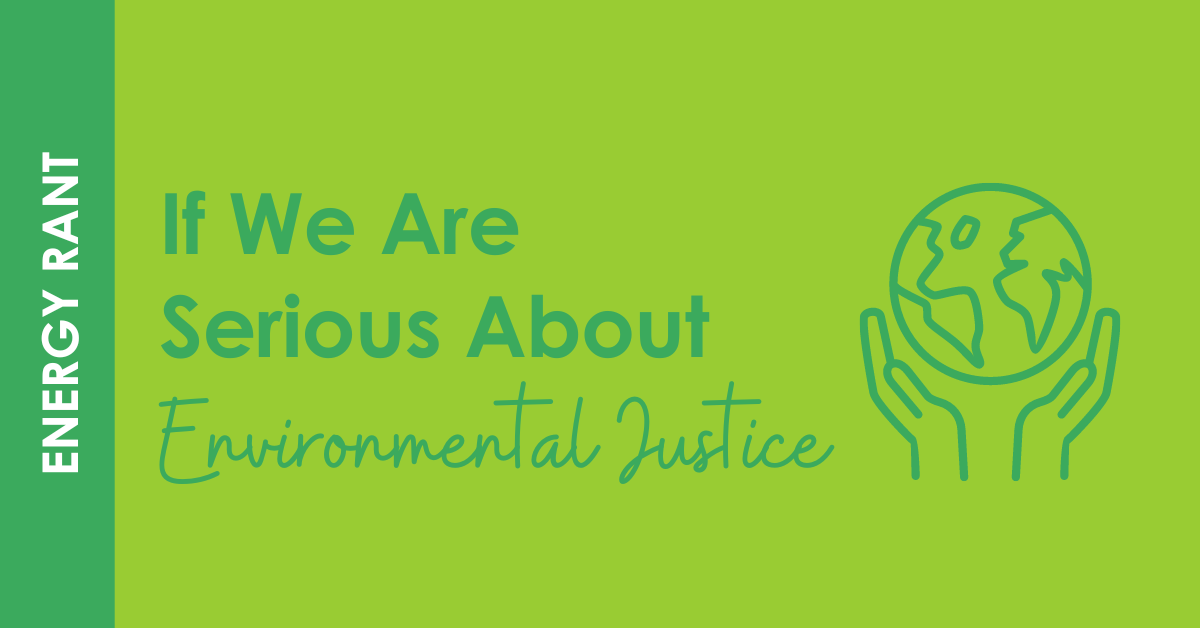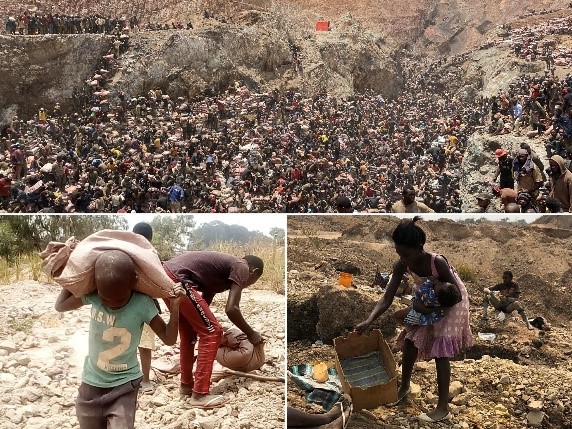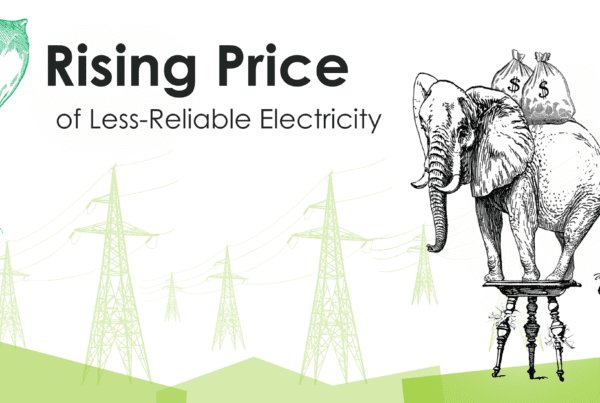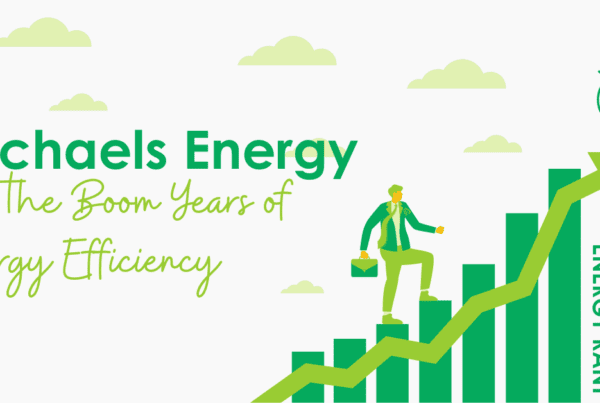
This week’s Energy Rant was guest written by Teri Lutz, Director of Sales & Marketing at Michaels Energy. Teri believes in a fair and just energy economy and hopes this Rant edition will inspire our readers to get involved and advocate for environmental justice here and abroad. Please do not be silent in the face of injustice and inequity. Make your voice heard and your actions matter.
If we are serious about environmental justice – and the very survival of Earth – the supply chain matters.
“We shouldn’t be transitioning to the use of electric vehicles at the cost of the people and environment of one of the world’s most downtrodden and impoverished corners. The bottom of the supply chain, where almost all the world’s cobalt is coming from, is a horror show.”[1]
The Democratic Republic of Congo (DRC) is rich in essential and precious mineral deposits that power our sustainable economy, our industry. Literally. Almost half the world’s known supply of cobalt, used in nearly all lithium-ion rechargeable batteries, rests in the ground beneath the DRC.[2],[3] And yet despite cobalt exports from the DRC currently providing 70 percent of global supply[4], the Congolese people are among the five poorest peoples in the world.[5]
The artisanal and small-scale mining (ASM), accounting for about one-third of DRC mined cobalt, is “a brutal industry where hundreds of thousands of men, women and children dig with bare hands and basic tools in toxic, perilous pits, eking out an existence on the bottom rung of the global supply chain”.[6] The extracted cobalt is often processed in these same communities poisoning the air, water, and ground. The choice? Mine for $2 a day or starve.
The artisanal mining industry in the Democratic Republic of the Congo is rife with forced and child labor, unreported deaths and human rights abuses, writes academic and modern slavery researcher Siddharth Kara in his new book Cobalt Red. Pictured: Thousands of Congolese workers cram into a cobalt mining pit. A young boy carries a sack at a small-scale cobalt mining site. Thousands of children are mining for cobalt in the DRC as their families cannot afford to pay school fees on meager wages. A woman places a baby into a cardboard crib on the ground while she works at a cobalt mine site. Women are paid only a fraction of the paltry sums paid to men for their mining work. [7]
The Carbon Bomb
Mineral mining in the impoverished DNC comes at both a local and global climate cost. The Congo Basin, comprised of woodlands and peatlands, sequesters more carbon than any other rainforest – it has stored the equivalent of 20 years of the United States’ carbon emissions from burning fossil fuels.[8] As mining operations grow, forests are leveled and burned, releasing carbon and removing the plant matter required to maintain the peatlands. “Peat is made up of semi-decomposed organic material, mostly leaves and bark and other plant remains. It normally takes thousands of years to form into thick layers, attaining an unmatched carbon density in the process. In just a few days, however, it can be drained of moisture, setting off chemical processes that irreversibly release its carbon over the course of ensuing decades.”[9]
Is there immediate action you can take? Yes. Here are just a few.
- Keep & maintain. Take a moment to add up the rechargeable electronic devices you interact with daily. Consider how many generations of these devices you have cycled through and how many you are likely to in your lifetime. Can you slow down how often you replace your devices? Can you purchase refurbished rather than new?
- Inform. Continue to learn, stay informed, and share what you know about global mining practices. Learn and promote discussion about recovering already mined minerals from obsolete batteries, devices, and equipment.
- Lobby. Take a stand and demand more from big tech as they source cobalt and other essential minerals.
- Support. The Friends of the Congo, a 501 (c) (3) tax-exempt advocacy organization based in Washington, DC established in 2004 to work in partnership with Congolese to bring about peaceful and lasting change in the Democratic Republic of Congo (DRC). There are many other non-profit organizations working with the Congolese people.
Environmental justice starts within our own communities. And it must spread globally.
[1] Siddharth Kara, a fellow at Harvard’s T.H. Chan School of Public Health and at the Kennedy School, has been researching modern-day slavery, human trafficking, and child labor for two decades. https://www.npr.org/sections/goatsandsoda/2023/02/01/1152893248/red-cobalt-congo-drc-mining-siddharth-kara
[2] https://www.npr.org/sections/goatsandsoda/2023/02/01/1152893248/red-cobalt-congo-drc-mining-siddharth-kara
[3] https://www.npr.org/sections/goatsandsoda/2023/02/01/1152893248/red-cobalt-congo-drc-mining-siddharth-kara
[4] https://www.usip.org/publications/2022/11/moving-toward-just-transition-green-minerals
[5]https://www.worldbank.org/en/country/drc/overview#:~:text=DRC%20is%20among%20the%20five,in%20SSA%20lives%20in%20DRC
[6] https://www.independent.co.uk/climate-change/news/phone-electric-vehicle-congo-cobalt-mine-b2277665.html
[7] https://www.independent.co.uk/climate-change/news/phone-electric-vehicle-congo-cobalt-mine-b2277665.html
[8] Check out this 6-minute video explaining the ‘carbon bomb’; https://friendsofthecongo.org/climate-change/





